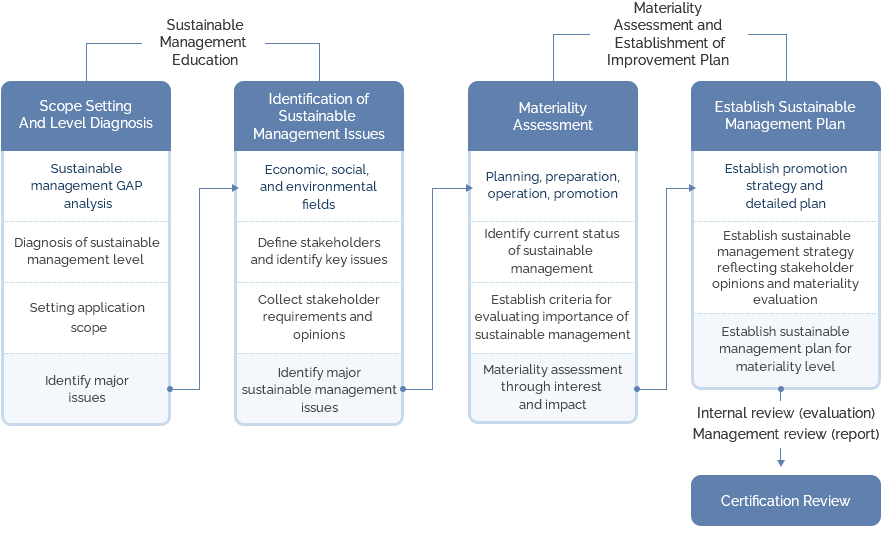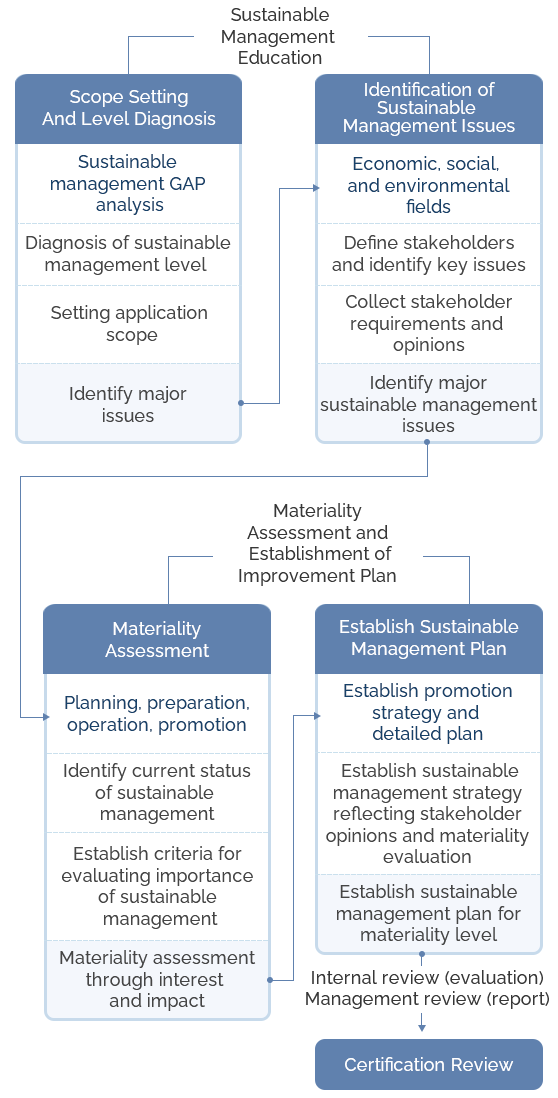ISO 20121
ISO 20121
The Korea Tourism Organization has acquired the ISO20121 (Event Sustainability Management System) Certification to lead and support the widespread implementation of Sustainable MICE
What is ISO20121 (Event Sustainability Management System)?
| Definition | An international standard to encourage event organizers to manage events sustainably, with the most efficient practice in areas of economic, environmental and social factors. |
|---|---|
| History | Developed by a committee comprised of global experts in the field of MICE and sustainability, effective from June 15, 2012. *The 2012 London Olympic Organizing Committee was the first to acquire the certification, and within the domestic MICE industry, Korea Tourism, Jeju CVB and Daegu CVB have acquired the certification. |
| Eligibility | Organizers (government/public institutions, academic/associations, etc.), Event Venues, Agencies (PCO, PEO), etc. |
| Certification method | 2-step screening process (Step 1: document screening / Step 2: on-site screening) ※ Evaluation focuses on whether the PDCA system for sustainability improvement is in place |
| Validity period | 3 years (However, follow-up management review is required every year to maintain qualification after certification) |
(Source: Korean Standards Association)
ISO20121 Certification Process


- Sustainable Management Education
- Scope Setting And Level Diagnosis
- Sustainable management GAP analysis
- Diagnosis of sustainable management level
- Setting application scope
- Identify major issues
- Identification of Sustainable Management Issues
- Economic, social, and environmental fields
- Define stakeholders and identify key issues
- Collect stakeholder requirements and opinions
- Identify major sustainable management issues
- Scope Setting And Level Diagnosis
- Materiality Assessment and Establishment of Improvement Plan
- Materiality Assessment
- Planning, preparation, operation, promotion
- Identify current status of sustainable management
- Establish criteria for evaluating importance of sustainable management
- Materiality assessment through interest and impact
- Establish Sustainable Management Plan
- Establish promotion strategy and detailed plan
- Establish sustainable management strategy reflecting stakeholder opinions and materiality evaluation
- Establish sustainable management plan for materiality level
- Materiality Assessment
- Internal review (evaluation)/Management review (report)
- Certification Review